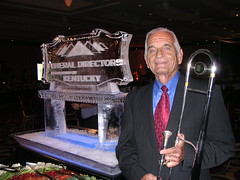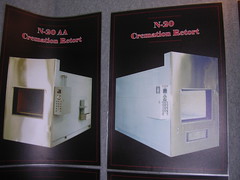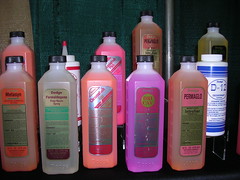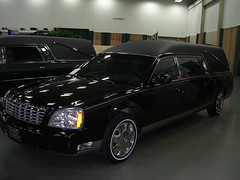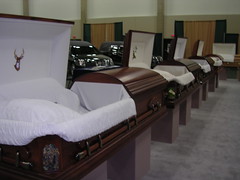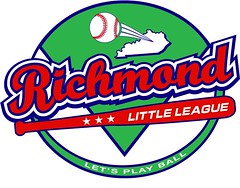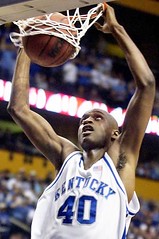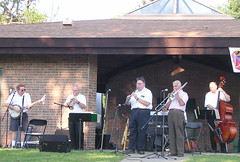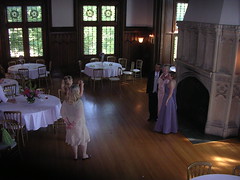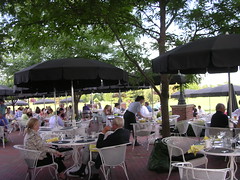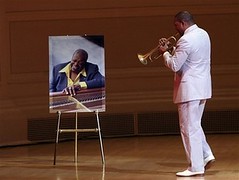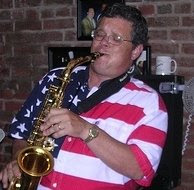From yesterday's Wall Street Journal:

A Sax Virtuoso's Final CD
By ASHLEY KAHN
June 13, 2007; Page D8
Among the jokes musicians share while filling time on the road, there's one that asks, "How many saxophonists does it take to screw in a light bulb?" The wry answer elicits knowing smiles and speaks a truth that almost every modern-day reed-player must face eventually.
"Twenty-one. One to screw it in, and the rest to discuss how Michael Brecker would have done it."
Mr. Brecker -- who died this past January at age 57 while putting the final touches on "Pilgrimage," his last studio album -- was arguably the best-known and easily the most influential saxophonist to come of age in the rock era. From his point of arrival in 1969, he grabbed the ears of his generation with a fluid virtuosity on the tenor saxophone. He had an uncanny ability to construct passionate solos that slid seamlessly into pop ballads, rock tunes and funk workouts. He was just as dexterous adding shade and intensity to radio hits by Aerosmith, James Brown and Paul Simon (his 20-second solo on Simon's "Still Crazy After All These Years" is considered a miniature masterpiece) as he was playing with jazz giants like Chick Corea, McCoy Tyner and Elvin Jones.
Perhaps Mr. Brecker's most singular achievement was garnering star-like status among general music fans while maintaining the respect of jazz purists -- not to mention the highest regard of his fellow musicians. Many of Mr. Brecker's recordings, as a leader or as a member of jazz-rock fusion ensembles like the Brecker Brothers and Steps Ahead, are now considered primers for serious instrumentalists. To those who chose to pick up the saxophone after Mr. Brecker, his astounding technique and emotional depth remain required listening.
"I began studying in the '80s, and there were only a few modern-day saxophone players that most of us focused on," says saxophonist Ravi Coltrane. "Michael was just another caliber of musician. What he was playing nobody else could play technically, and conceptually he was very methodical."
Pianist Brad Mehldau, who performs on Mr. Brecker's final album, stands as proof of the saxophonist's sway beyond reed players. "In high school there was a group of us -- we had what we called 'Breckeritus.' The tenor players were playing Brecker licks verbatim, or trying to, and it was all rubbing off on my very fledgling vocabulary. We were all trying to figure out what he was doing."
Mr. Brecker's approach was widely imitated, to a fault according to some. "We used to call them 'Brecker-heads' -- guys who would play in a Brecker style, just being brash and doing whatever they could do to play all those licks," Mr. Coltrane recalls. "But Michael always maintained an elegance and a dignity about what he was doing. It wasn't just a hyper-development of technique, out of proportion with the emotional connection. Every note he played made sense."
So, what made Mr. Brecker's style so distinctive and dangerously seductive? The answer, as is often the case with musicians, lies in his history.
Born in 1949, Mr. Brecker grew up at a time when walls between musical -- as well as political and cultural -- categories were crumbling at a rapid rate. From the late 1960s into the '70s, rock bands were jamming over extended, modal passages, while jazz groups -- like those led by trumpeter Miles Davis -- were breaking ground by adding rock and funk rhythms to their acoustic mix, along with electric guitars and keyboards. In the best sense, Mr. Brecker's musical priorities reflected the prejudice-free ideals of the day. To him, music, played in any style or in any key, offered an equal opportunity to improvise.
To his contemporaries, like former Davis saxophonist Dave Liebman, Mr. Brecker was among the first of his generation to successfully translate the jazz innovations of the 1960s. Especially those of John Coltrane.
"He was able to take the incredible detail, the language of Coltrane, and find a place for it in rock and popular music without betraying either side," recalls Mr. Liebman, who later co-founded the group Saxophone Summit with Mr. Brecker. "In the early '70s, his sound became the thing: Every musician, every producer wanted it on their record, and Michael was the one to give it to them."
Guitarist Pat Metheny -- who also performs on "Pilgrimage" -- was 18 when he heard one of the saxophonist's most celebrated contributions to rock radio in 1972. "I was driving by a major intersection in my town, Lee's Summit, Mo. I heard James Taylor's single 'Don't Let Me Be Lonely Tonight' with this tenor player on it. I just had to pull over. I was like, that's the best tenor sound and best tenor conception -- who is that playing that post-Coltrane style of saxophone?"
Coltrane was indeed a guiding influence at the start. "I remember going out and buying 'A Love Supreme,'" Mr. Brecker said, in 2001, of Coltrane's popular album. "I listened to that record every day in my bedroom. It's still etched in my psyche." Though he developed a lifelong enthusiasm for other sax-based improvisers like Wayne Shorter, Joe Henderson and Sonny Rollins, Mr. Brecker remained primarily focused on Coltrane. In a number of ways, his own history paralleled that of his inspiration.
Both reached maturity in the Philadelphia area and relocated to New York City, all the while studying and practicing on the sax with the intention of knowing the instrument completely. "I'm constantly discovering more things that the acoustic saxophone can do," Mr. Brecker once said. "I don't feel it's been pushed to the limits yet." Both became hooked on hard drugs during their 20s, then kicked their habits after reaching 30, rededicating themselves to their musical path.
Like Coltrane, Mr. Brecker initially established himself as a sideman, sessionman and band member, hesitating to strike out on his own until he was in his 30s. "I quite honestly was scared to do it -- I [preferred] sharing the pains and successes," he admitted around the time his first solo album finally appeared in 1987.
And as Coltrane added soprano sax to his creative arsenal in midcareer, Mr. Brecker also expanded to a more demanding one and pioneered the use of the EWI -- or electronic wind instrument -- essentially a reed-driven synthesizer. "There's a part of me that feels like I'm playing this museum piece," Mr. Brecker said of the saxophone. "Now the tables are turning. Partly because of the new technology . . . I'm very happy to be in the time I'm in."
Mr. Brecker was happiest when creating music, and averse to most career-oriented activity. He accepted accolades and accomplishments (like 13 Grammy awards) with extreme humility, and agreed to interviews only reluctantly, preferring to spotlight those who inspired him. He spoke of his deepest passions through his horn: In 2001, trumpeter Roy Hargrove and keyboardist Herbie Hancock toured with Mr. Brecker as Directions in Music, a tribute to the music of Davis and Coltrane. Mr. Brecker's solo rendition of the latter's "Naima" was the show-stopper, eliciting standing ovations as he hopped from the saxophone's lower to upper register and back with fervent agility.
During a Directions tour in 2005, Mr. Brecker discovered he had developed myelodysplastic syndrome, a rare cancer of the blood marrow. A well-publicized, two-year search for a stem-cell donor ensued. A partial-matching transplant from his daughter allowed him to gather his strength, and last July he made a surprise appearance at the JVC Jazz Festival in New York. It was his last public performance.
A month later, Mr. Brecker was strong enough to revisit some compositions he had been working on with the arranger Gil Goldstein and return to the studio. "Pilgrimage" is the happy result of those sessions, a nine-track album that bristles with the band Mr. Brecker assembled: not only Messrs. Hancock, Mehldau and Metheny, but drummer Jack DeJohnette and bassist John Patitucci.
"Pilgrimage" is an inspiring tour de force that measures up to the promise of its all-star cast: Vibrant and edgy solos abound, and varying moods and memorable themes color much of the album. In its energy and upbeat, visceral flavors it transcends any tendency to hear it as an epitaph. There's but one slow ballad ("When Can I Kiss You Again?") that is more soaring than doleful. Listening for the variance between Mr. Hancock's and Mr. Mehldau's keyboard styles is a delight in itself.
There's a playful piece of abstraction that slyly suggests a funky groove ("Loose Threads") and a fast-lane romp that relies on a dizzying series of rhythmic shifts ("Anagram") that Messrs. DeJohnette and Patitucci deliver. Mr. Brecker's muscular tenor ("The Mean Time") and urgent, EWI-triggered vocal cries ("Tumbleweed") testify to the restorative power of music. The lyrical heart of the album reveals itself on the title track: opening with a Coltrane-like benediction, passing through a series of uplifting improvisations, and closing with a bold and confident thrust.
"Pilgrimage" also captures Mr. Brecker's startling growth as a composer, already suggested in 2003 on his album "Wide Angles." Significantly, "Pilgrimage" features all new material written by Mr. Brecker alone, flush with a feeling of risk-taking and a strong sense of moving forward. Had he not departed, who knows what steps lay ahead?
Mr. Kahn is the author of "The House That Trane Built: The Story of Impulse Records" (W.W. Norton).
